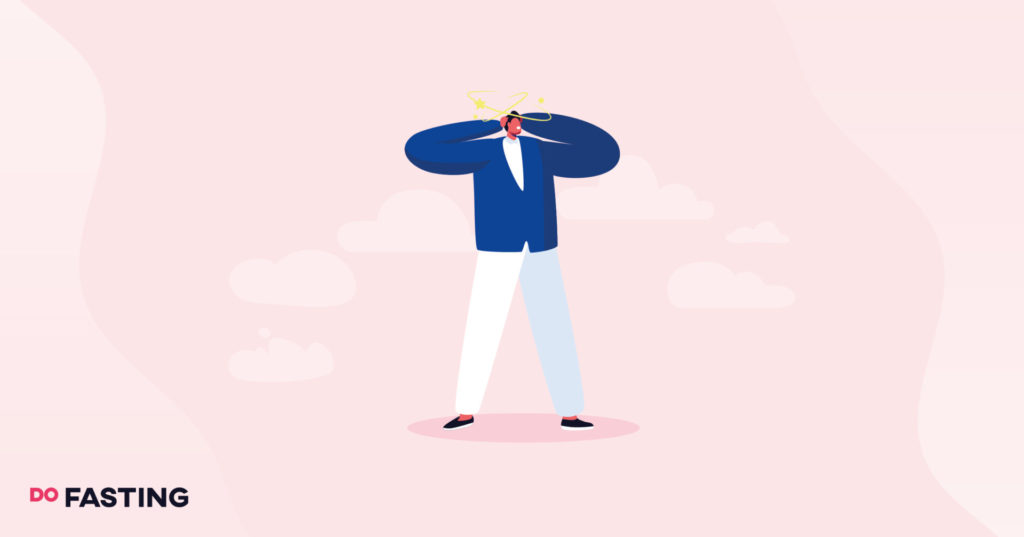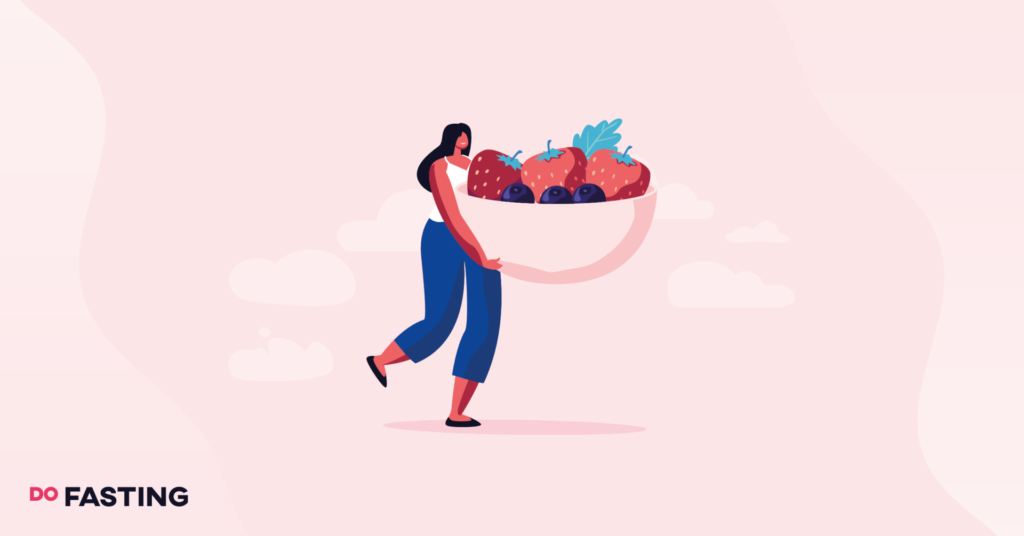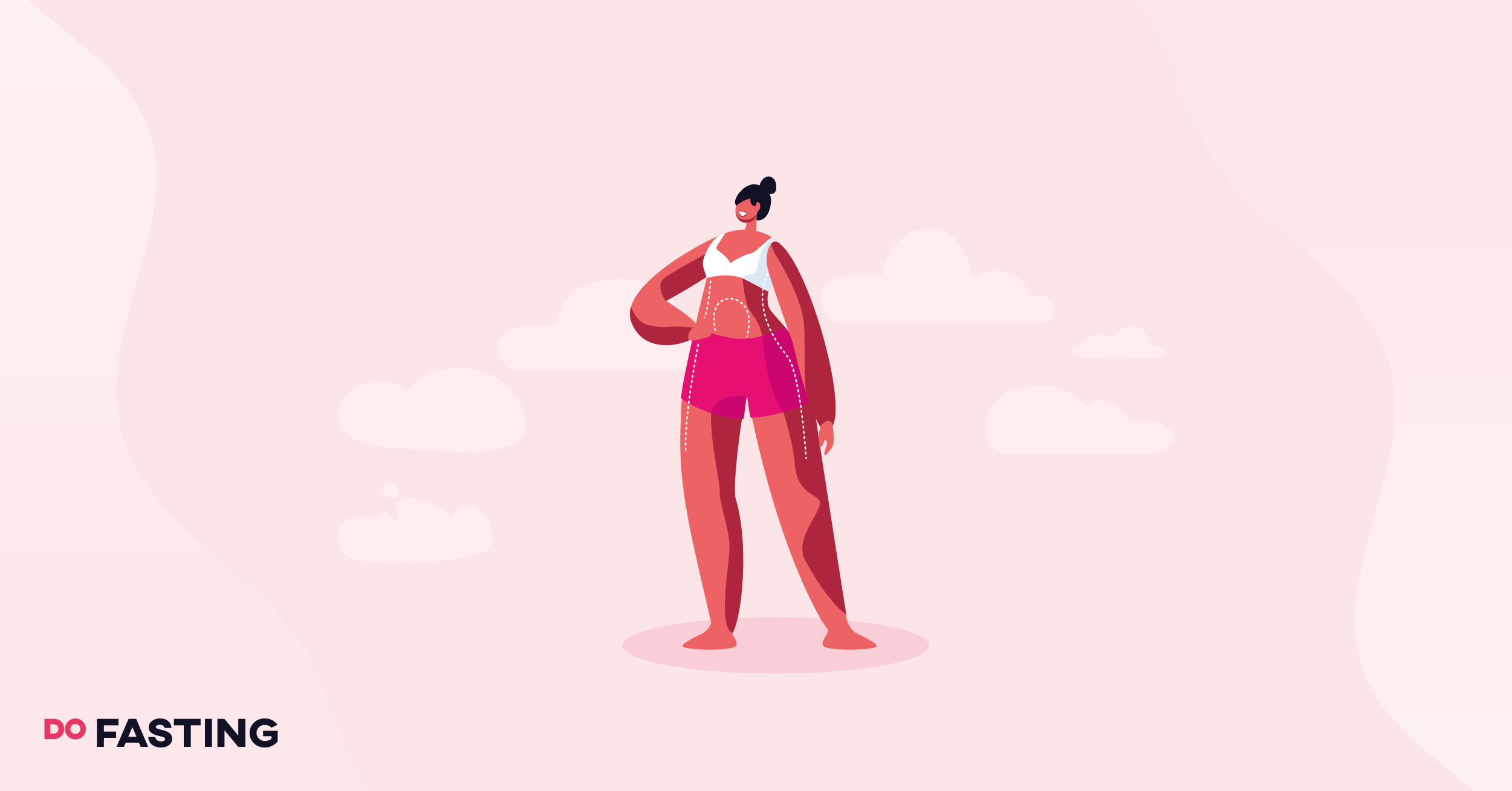Contents
Why Do You Get Intermittent Fasting Headaches?
Intermittent fasting is an eating pattern that controls when you eat rather than what you eat. There are several different methods of fasting and although it may sound extreme, the majority of people naturally fast when they sleep and it just involves extending those hours.
Many studies have shown that it can cause weight loss, improve metabolic rate and even protect against disease. The eating pattern doesn’t come without side effects and those come in the form of headaches during intermittent fasting.
One of the most common reasons for these headaches is thought to be low blood sugar from eating fewer calories. However, intermittent fasting headaches have also been present in people with normal blood sugar levels. This shows that it’s not as simple as just one reason behind the headaches.
Experts believe that intermittent fasting headaches have been associated with caffeine withdrawal. Caffeine is one of the most consumed psychoactive substances around the world. It acts as a stimulant to the nervous system and can increase alertness and focus. Anyone who has attempted to cut out caffeine will be familiar with the symptoms of caffeine withdrawal.
Headaches are one of the most commonly reported side effects. Depending on the kind of fast you’re doing, reducing your caffeine intake suddenly may cause withdrawal symptoms. The other reason why you might be experiencing headaches while intermittent fasting is because of dehydration. Dehydration can not only cause headaches but can also make you feel sluggish and slow down your digestion.
A small study on chronic migraines found that 34 out of 95 people considered dehydration a trigger for headaches. During your fasting period, make sure to drink plenty of water and avoid soda. You can also drink green tea and bone broth while intermittent fasting without breaking your fast.
Take a
1-minute quiz
and discover how much weight you can lose with DoFasting!

How to Stop Intermittent Fasting Headaches Fast
While the precise cause of intermittent fasting headaches is still being debated, there are a few things you can do to prevent and stop them. Changes in blood sugar levels are common and usually, the problem fixes itself when you eat.
To try and avoid these drops in blood sugar, make sure to not skip meals during your eating window. Eat more calories from high-quality fats during your meals so your body doesn’t use sugar as much for fuel. Whether it’s your eating or fasting window, hydration is key not only to helping keep headaches at bay but to your overall health.
Dehydration can lead to tiredness, headaches, dry skin and increased thirst. Depending on your activity levels and climate, your water requirement can change. When intermittent fasting you can drink as much water as you like. If the taste gets a bit boring, try adding a slice of lemon or fresh mint to add to the flavor.
If you’re fasting for longer periods of time with only water for health or religious reasons, it may be useful to start cutting out caffeine before you start your fast. Going completely cold turkey may put you into caffeine withdrawal and cause headaches. Cut back on caffeine gradually and try alternatives like herbal teas.
If you’re not ready to cut it out completely, switching to green tea is a great start as it contains 40 mg of caffeine compared to 100 to 200 mg in coffee.
5 Useful Intermittent Fasting Tips
The main goal of intermittent fasting is to give your body a break from food. During this period your body can focus on cleansing rather than constantly digesting food. Intermittent fasting can also be very beneficial for the gut helping to improve the balance of bacteria in the gut and increase the diversity of bacteria.
1. Stay Hydrated
Drink plenty of water throughout the day during fasting and non-fasting periods. Even just mild dehydration can result in fatigue and headaches. The general recommendation for water intake is eight 8-ounce glasses, however, the precise number is very individual.
2. Don’t Break Fasts With a Huge Meal
Depending on the type of fast you’re doing, you may be alternating days or going for longer periods without eating. It can be tempting to eat a huge meal to break the fast but, this could leave you feeling bloated, uncomfortable, and tired.
3. Eat Nutrient-Dense Foods
After your fasting period, eat foods that are nutrient-dense and contain plenty of fiber, vitamins, minerals, and nutrients. A balanced diet is great for weight loss, overall health, and keeping your blood sugar levels sturdy.
4. Rest and Relax
On fasting days, avoid doing strenuous activities and stick to more gentle forms of exercise like walking and yoga. Light exercise can be beneficial for you but always listen to your body.
Avoiding eating on fasting days can be difficult especially if you’re bored or start to get hungry. Activities like meditation may help to distract you while making you feel calmer at the same time.
Take a
1-minute quiz
and discover how much weight you can lose with DoFasting!

5. Don’t Obsess Over Food
On days where you’re fasting, try not to obsess over food. Plan loads of distractions to keep you busy to avoid thinking about food. Go watch a movie or catch up on your work emails to stay on track.
Although the exact mechanisms that cause intermittent fasting headaches are yet to be discovered, it’s thought that a combination of caffeine withdrawal, low blood sugar levels, and dehydration definitely play a part.
Listen to your body, drink plenty of water and eat nutrient-rich foods during your eating window to keep those pesky headaches away.
See how DoFasting will improve your life
Find out what works for you with this 60-sec quiz approved by our experts and get your personal revolutionary fasting assistant.
Start the Quiz
This is an evidence-based article that includes scientific citations. DoFasting’s professional writers and editors prepared the content, which a team of medical experts verified to be accurate.















